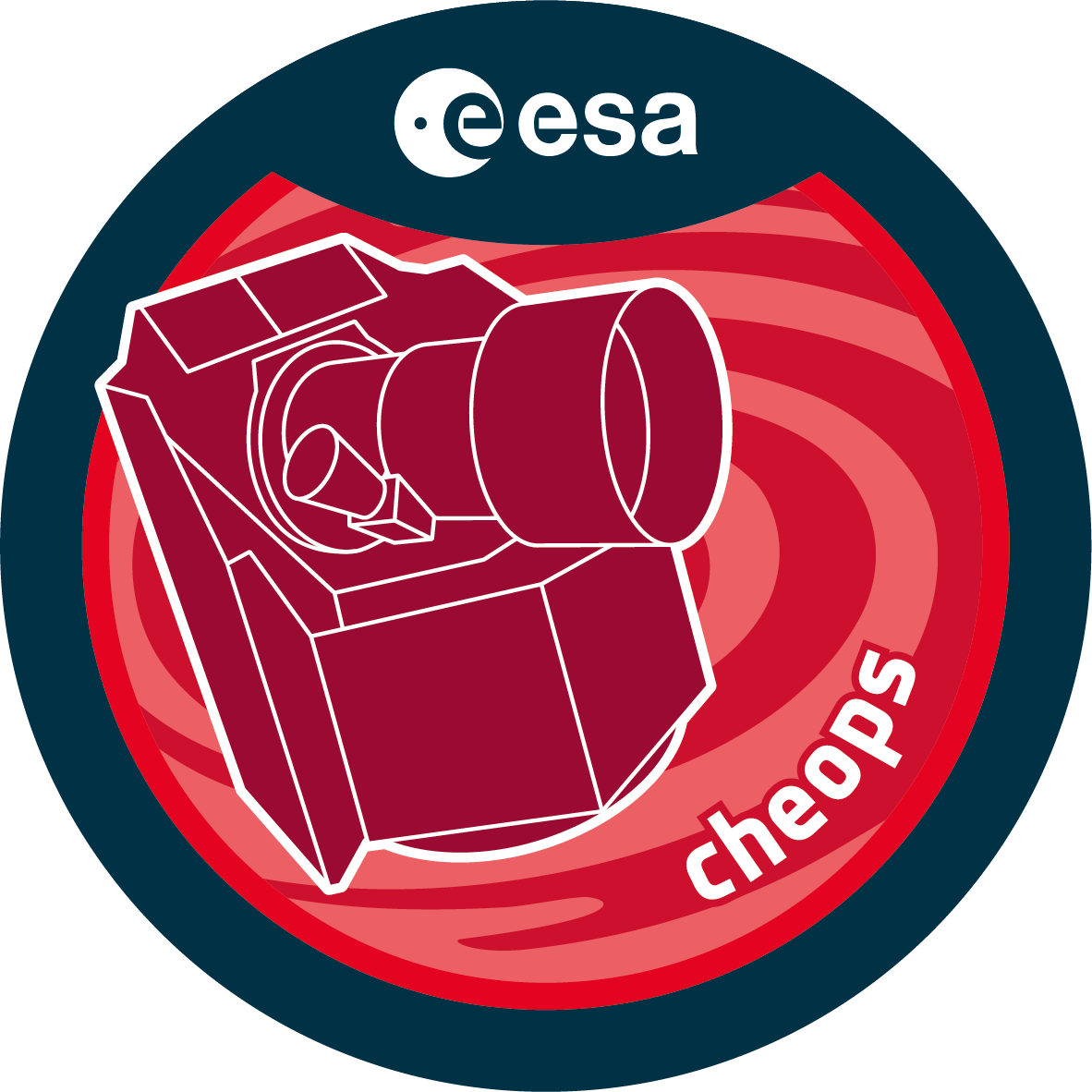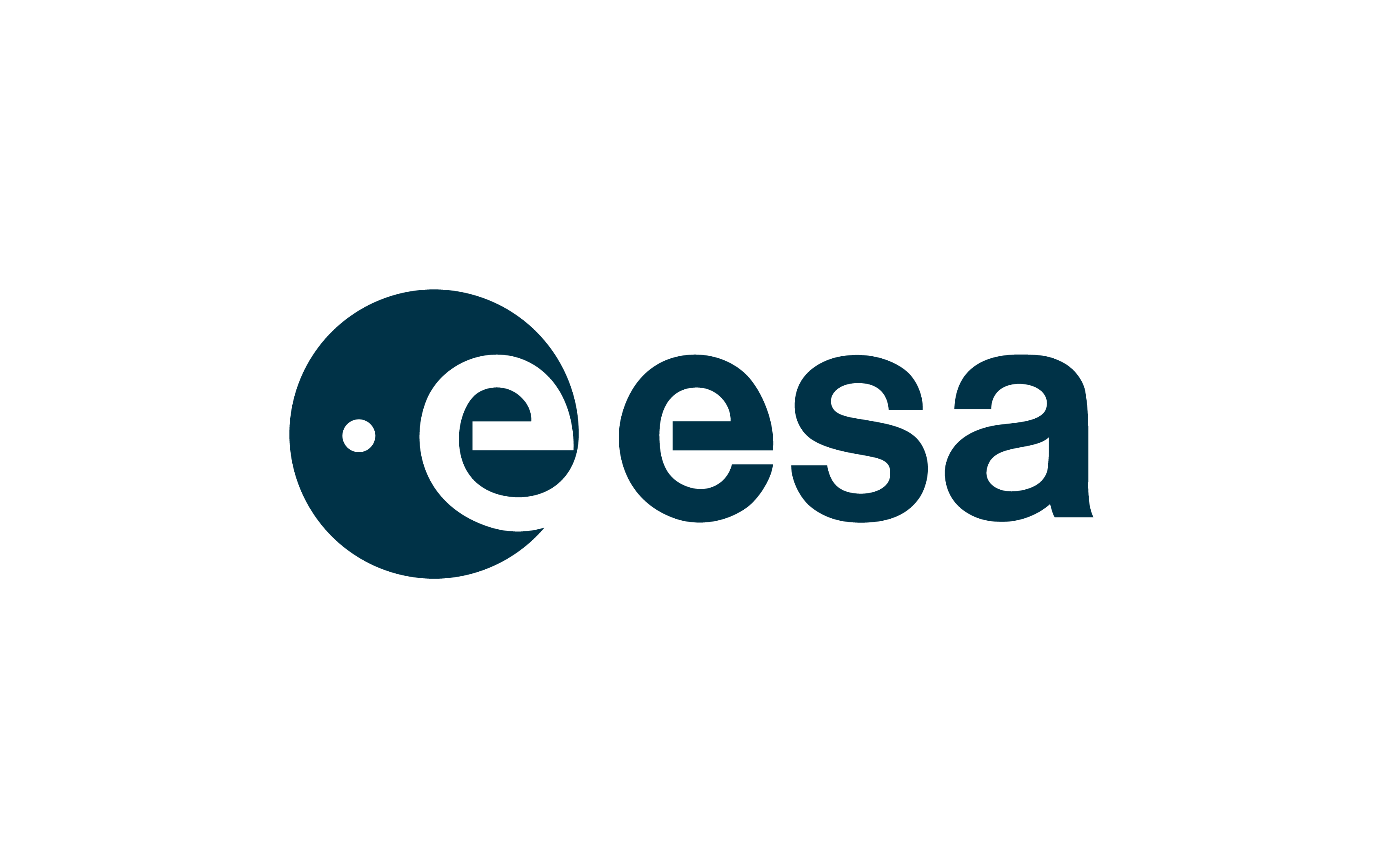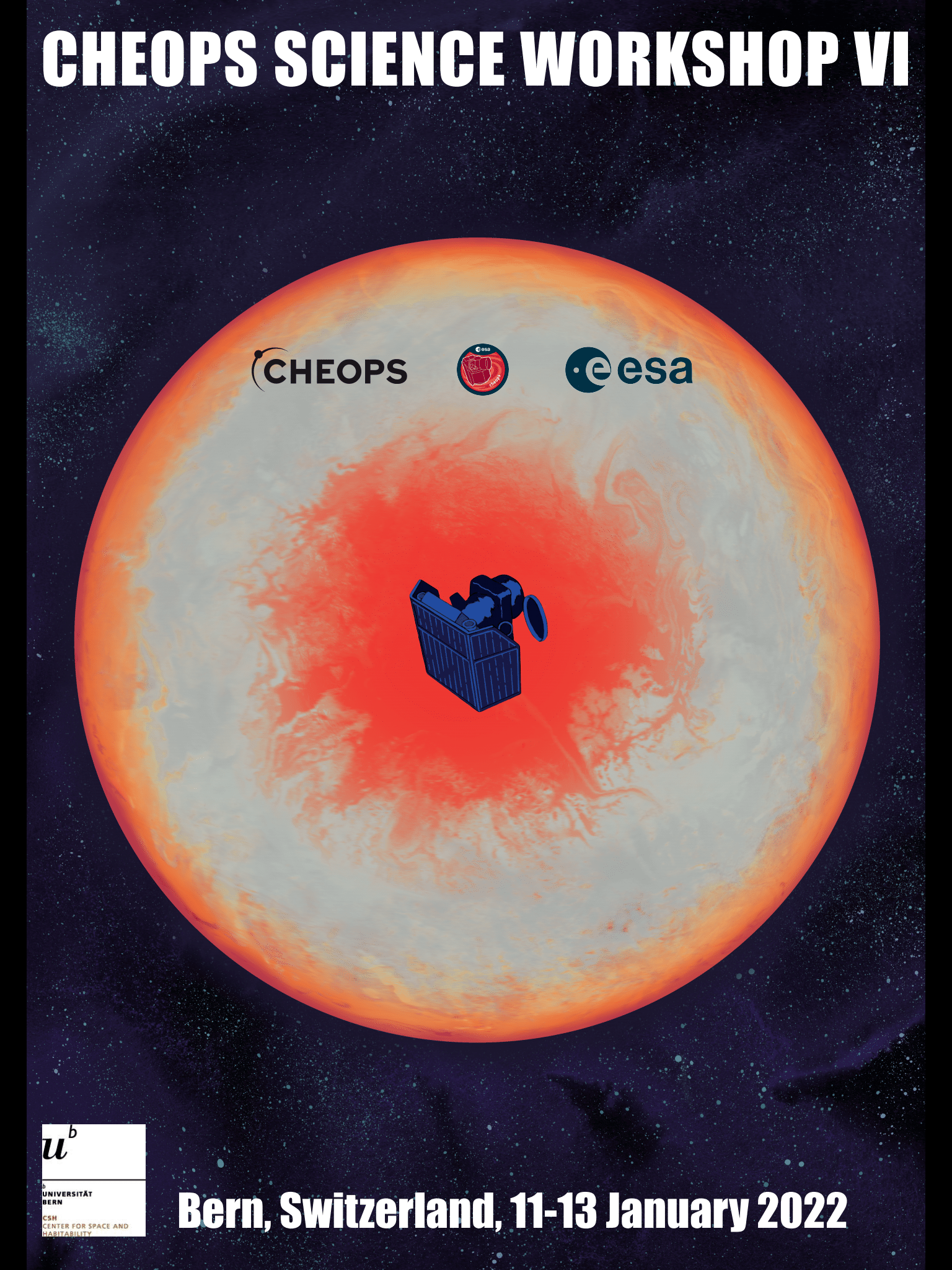CHEOPS Science Workshop VI



Goal of the meeting
The CHEOPS workshop VI will be held from 11 to 13 January 2022, 20 months after the beginning of CHEOPS science operations. The workshop will be the occasion for the planetary science community at large to discuss and share the first main results of CHEOPS in different fields, from the planetary internal structure to atmospheric characterization, etc. Participants are invited to propose contributed talks and posters on all scientific aspects linked to CHEOPS, including CHEOPS based-results as well as proposals for future observations and synergies with other facilities, as for example:
- mission update and performances
- finding transits of already known planets
- mass-radius relation and planetary internal structure
- TTV
- tidal deformation
- moons and rings
- tidal decay
- phase curves
- planet heat redistribution
- cloud properties
- albedo

Credit: Frederik Peeters / David Ehrenreich
Registration
Registration is closed. Due to the recent evolution of the pandemic situation, the workshop will be online only.
Program
(11th - 13th January, 2022)
To join the social and poster part: https://gather.town/events/xAJPRaNH9YpLOXy08kOK
The zoom link is available in gather.town (in the meeting hall) and will be sent per email to all registered participants.
All times are given in Central European Time.
Tuesday, 11th January 2022
| Time | Title | Speaker |
|---|---|---|
| 13:00 - 13:05 | Welcome | Willy Benz |
| 13:05 - 13:10 | Logistics | Christopher Broeg |
| 13:10 - 15:00 | The CHEOPS mission - Chair: Didier Queloz | |
| CHEOPS Mission Status | Christopher Broeg | |
| CHEOPS Performance | Andrea Fortier | |
| CHEOPS Data Reduction Pipeline | Sergio Hoyer | |
| Mission extension | David Ehrenreich | |
| The CHEOPS Guest Observers Programme | Kate Isaak | |
| 15:00 - 15:30 | Break | |
| 15:30 - 18:00 | Formation / Evolution / Internal structure - Chair: Andrea Fortier | |
| The Radius Valley across stellar types | Julia Venturini | |
| The origin of the radius valley: formation and evolution | Christoph Mordasini | |
| Architecture of Exoplanetary Systems: A system level approach in the age of CHEOPS | Lokesh Mishra | |
| A compositional link between rocky exoplanets and their host stars | Vardan Adibekyan | |
| Characterisation of the interior structures and atmospheres of multiplanetary systems | Lorena Acuna | |
| Unveiling the atmospheric evolution of exoplanets: the PASTA tool | Andrea Bonfanti |
Wednesday, 12th January 2022
| Time | Title | Speaker |
|---|---|---|
| 13:00 - 15:05 | Planetary systems and synergy with other missions - 1 Chair: Magali Deleuil | |
| Unveiling the TOI-1064 system with TESS, CHEOPS, and HARPS | Tom Wilson | |
| HD 93963: a planetary system hosting the first ultra-short period super-Earth discovered by CHEOPS | Luisa Serrano | |
| Investigating the architecture and internal structure of the TOI-561 system planets with CHEOPS, HARPS-N and TESS | Gaia Lacedelli | |
| Uncovering the true periods of two sub-Neptunes around a bright, young star | Hugh Osborn | |
| Cheops reveals the tidal deformation of WASP-103b | Susana Barros | |
| 15:05 - 16:45 | Break and poster session | |
| 16:45 - 18:00 | Planetary systems and synergy with other missions - 2 Chair: Heike Rauer | |
| GJ 367b: A dense ultra-short period sub-Earth planet transiting a nearby red dwarf star | Kristine Lam | |
| TOI-178 | Adrien Leleu | |
| Exploring the Nu2 Lupi system with CHEOPS | Laetitia Delrez |
Thursday, 13th January 2022
| Time | Title | Speaker |
|---|---|---|
| 10:00 - 12:00 | Poster session | |
| 13:00 - 15:05 | Atmospheres - Chair: Kate Isaak | |
| Atmospheric characterization of the ultra-hot Neptune LTT 9779 b | Sergio Hoyer | |
| Discriminating between Conflicting Measurements of Exoplanet Transit Parameters through Joint Analysis of Observations by TESS and CHEOPS | Fan Yang | |
| Spin-orbit alignment from transit photometry: the case for multi-colour observations | Matthew Hooton | |
| The atmosphere and architecture of WASP-189 b probed by its CHEOPS phase curve | Adrien Deline | |
| Novel Approaches for Fitting and Interpreting Phase Curves: Reflected Light and Thermal Emission | Kevin Heng | |
| 15:05 - 15:35 | Break | |
| 15:35 - 17:40 | Other science with CHEOPS - Chair: Davide Gandolfi | |
| CHEOPS' view on orbital light pollution | Nicolas Billot | |
| The changing face of AU Mic b: transit timing variations, stellar spots, spin-orbit commensurability | Gyula Szabo | |
| A Search for Longer-Period Exoplanets with TESS and CHEOPS | Amy Tuson | |
| Hot Jupiters, Cold Kinematics | Alex Mustill | |
| CHEOPS Timing capabilities: searching for TTVs of warm-Jupiter exoplanets | Luca Borsato | |
| 17:40 | Closing Remarks | Chris Broeg |
Poster presenters
Recordings
Andreas Krenn
Caroline Dorn
Gopal Hazra
Lorena Acuña
Mohammad Eftekhar
Venue
The workshop will be held online.
SOC
- Yann Alibert (Chair)
- Christopher Broeg
- Magali Deleuil
- Malcolm Fridlund
- Davide Gandolfi
- Kevin Heng
- Kate Isaak
- Laura Kreidberg
- Jacques Laskar
- Heike Rauer
LOC
- Attila Simon (co-chair)
- Chris Broeg (co-chair)
- Yann Alibert
- Andrea Fortier
- Wei Wang
- Danielle Zemp